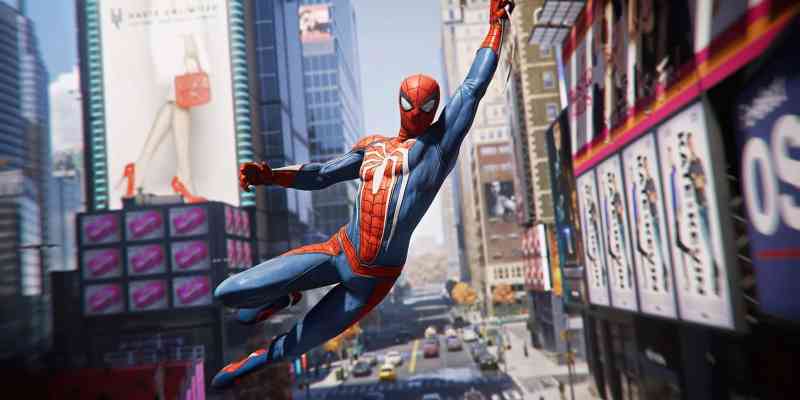Insomniac Games’ Marvel’s Spider-Man offers one of the best video game franchises in recent history, with a compelling narrative, fleshed-out characters, and robust gameplay mechanics. Within Marvel’s Spider-Man and Marvel’s Spider-Man: Miles Morales, players are taught to be heroes in every sense of the word. You save stores from robberies, prevent gang war, and even save household pets.
You develop responsibility via one simple element: a constant reminder that crime is happening all the time. With Peter Parker, it’s a police scanner; with Miles Morales, it’s an app that dials him into the beating heart of his neighborhood.
Does Whatever a Superhero Should
Spider-Man is about protecting the citizens of New York. As you swing across New York, as either Peter or Miles, you vigilantly scan the screen for that red exclamation point indicating there is trouble nearby. It feels like a nudge at first. Then this nudge turns into an itch in your brain. Then, finally, if you truly want to be a hero, it becomes a pull. And you’ll find yourself nowhere near your previous destination, but you will find yourself saving the umpteenth civilian from a shootout in the streets of New York.

Think about it: How often in your playthroughs of both titles did you ignore the sirens? I know I didn’t. Whenever an officer came in over the call stating the situation, I swung in as Pete. Whenever Ganke called in letting Miles know there was trouble, I immediately went to it. This would usually be to the detriment of the flow of the main narrative of both titles.
This is one of the key features of Marvel’s Spider-Man and Miles Morales that elevates them above other games of their kind. They aren’t just superhero video games but earnest superhero simulators. All it is missing at this point is a mechanic where you have to figure out how to manage your secret identity, because let’s face it — Marvel superhero identities are a thing of the past.
With Great Power Comes Great Responsibility, Sometimes
One reason why everyone who plays these games feels compelled to stop and help is because it is just ingrained in the mythos that this is what Spider-Man should do. With figures like Batman for example, easily the next comparable hero with video game success, you aren’t pushed to save civilians in his games.
The games are actually set up so that you don’t have to worry about Gotham City citizens at all. Usually, at the beginning of each game, you’ll be told that all citizens in Gotham have been saved or are separated from the action. Basically, this takes them out of any superhero high jinks that may ensue.

You’re pushed into a vengeance narrative that typically has Batman at the center of it all. His villains are doing their evil deeds usually to get his attention. This is reflected in his games. There are few moments in the Arkham franchise, for example, where you simply save someone for the sake of saving them. It usually opens up a bigger universe.
For instance, in Batman: Arkham City you find clues to a missing person, and there’s a hat at the scene of the crime. This then turns into its own sidequest about the Mad Hatter, a relatively niche villain in Batman’s rogues’ gallery. Instead of it turning into a mission to save a victim, it becomes more about stopping a villain.
If you fail, sure, all of Gotham will likely fall, but it feels more like you’re protecting an idea, a concept. Meanwhile, in the Marvel’s Spider-Man games, you see the faces of the citizens of New York. They thank you, and you feel a part of something bigger.
This is where Marvel’s Spider-Man excels. My particular favorite is the F.E.A.S.T. van alerts. As Miles, you’ll get a call about a F.E.A.S.T. van getting attacked by criminals. Your main objective is not to stop the criminals — that’s just a happy accident — your objective is to protect the van driver because if you fail, they kill the van driver.

Building a Greater You
The legacy of Spider-Man is that it has allowed gamers to become better human beings. The mechanic of crimes constantly popping up around New York gives you a choice: Will you step up and be a hero, or will you ignore them?
It’s a question that is not outright asked. Rather, you ask it to yourself. Marvel’s Spider-Man lives up to its motto thanks to this morality-defining mechanic: Be greater.
